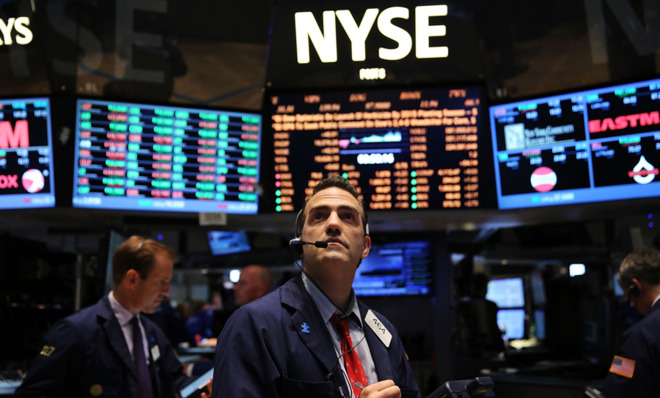In defense of economic thinking
If you’re looking for champions of the middle class, you're better off listening to economists than politicians

My colleague Damon Linker recently wrote a piece entitled "How economic thinking is ruining America," arguing that political considerations such as community, loyalty, citizenship, and the common good have been "sacrificed on the altar of economic profit-seeking."
As an economic thinker myself, I was bound to find some disagreement with Linker's view. But there is also a fair amount of common ground. As Linker argues, the years since the 2008 recession have been rough: "Inequality is up, while growth, job creation, and middle class wages are running far below historic norms. That's enough to drive even the cheeriest American to despair."
One economic measure, of course, that is not down is corporate profits, which are at all-time highs relative to the size of the economy. The same thing is true for the incomes of the top 1 percent. So Linker is absolutely correct to argue that corporate profit-seeking has been allowed to override political and cultural loyalties and restraints. The middle class has been trampled into the dirt.
Subscribe to The Week
Escape your echo chamber. Get the facts behind the news, plus analysis from multiple perspectives.

Sign up for The Week's Free Newsletters
From our morning news briefing to a weekly Good News Newsletter, get the best of The Week delivered directly to your inbox.
From our morning news briefing to a weekly Good News Newsletter, get the best of The Week delivered directly to your inbox.
But is that really a product of economic thinking? Or is it a product of a broken political system that funnels insider access, tax cuts, and bailouts to the well-connected, while largely ignoring the concerns of the middle class?
I think Linker is wrong to blame an "economic lens" for rampant inequality, a beaten-down middle class, and the sacrifice of ideals at the altar of profit-seeking. After all, there is no fundamental law of economics that prioritizes profit above all else.
Of course, the flow of money throughout an economy is really important information. Data around the quantities and qualities of things people buy are a feedback mechanism for firms, revealing what the market wants and what it doesn't and allowing businesses to produce more popular products and less unpopular ones. Prices, profits and losses allow millions of people in the economy to co-ordinate with each other — but they're not sacred.
The vast majority of economists, for instance, accept the necessity of taxes — which by definition, reduce profit — to fund large public projects, like infrastructure, national defense, job-creating stimulus packages, and a welfare safety net. And although there are some economists who reject any discussion of inequality and redistribution, there are many well-known public economists — for instance, Ha-Joon Chang, Paul Krugman and Thomas Piketty — who are deeply concerned about inequality and advocate redistributive measures to boost middle class incomes and reduce inequality.
A free daily email with the biggest news stories of the day – and the best features from TheWeek.com
They grasp the importance of broad-based prosperity, including a strong middle class as a driver of the economy, and, I would argue, are as motivated by ideals of fairness, community, justice and basic human compassion as the "instrumental concerns" of strong economic performance. There is little more destructive to the common bonds of society, community, and the political order than mass unemployment and mass poverty. Krugman's New York Times columns, in particular, have been a steady voice for job creation, instead of the job-destroying spending cuts that were favored by most politicians on both sides of the aisle just a few years ago.
So while I think Linker is right to point out that corporate values have become way, way too empowered in America, I don't think he has diagnosed the symptoms correctly. For one, what Linker seems to decry is a kind of corporate thinking, not economic thinking. More importantly, is the rise of corporate thinking the real problem? In my mind, corporate money is what's really infecting the body politic.
If today's "political lens" seems colored by corporate values, I'd argue the underlying cause is green. Politicians on both sides of the aisle are dependent on the donations of large corporations and the wealthy to get elected. And what do the wealthy in America want? Steep government spending cuts, (as long as some spending, like farm subsidies, military hardware purchases, and bank bailouts that protect the financial interests of the wealthy, is off limits). They're also the biggest beneficiaries of the trade agreements and global corporate mobility that Linker decries.
That's why I'd argue the causes of the malaise Linker talks about are more political than economic. It's the politics and the political power of the richest — not economic logic — that ails America.
John Aziz is the economics and business correspondent at TheWeek.com. He is also an associate editor at Pieria.co.uk. Previously his work has appeared on Business Insider, Zero Hedge, and Noahpinion.
-
 Exploring Georgia's southern highlands
Exploring Georgia's southern highlandsThe Week Recommends Visit Javakheti, Georgia's 'lake district', and meet the last-remaining 'spirit wrestlers' in the region
-
 Delivery drivers face continuing heat danger with Trump's OSHA pick
Delivery drivers face continuing heat danger with Trump's OSHA pickThe Explainer David Keeling is the former head of UPS and also worked at Amazon
-
 Is that the buzzing sound of climate change worsening sleep apnea?
Is that the buzzing sound of climate change worsening sleep apnea?Under the radar Catching diseases, not those ever-essential Zzs